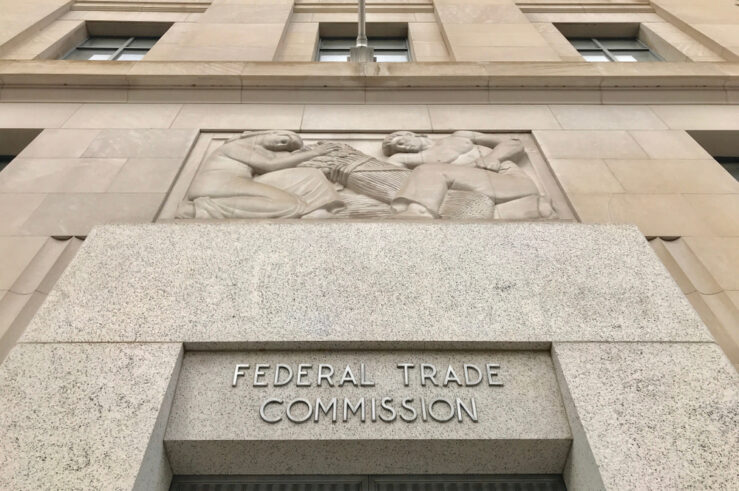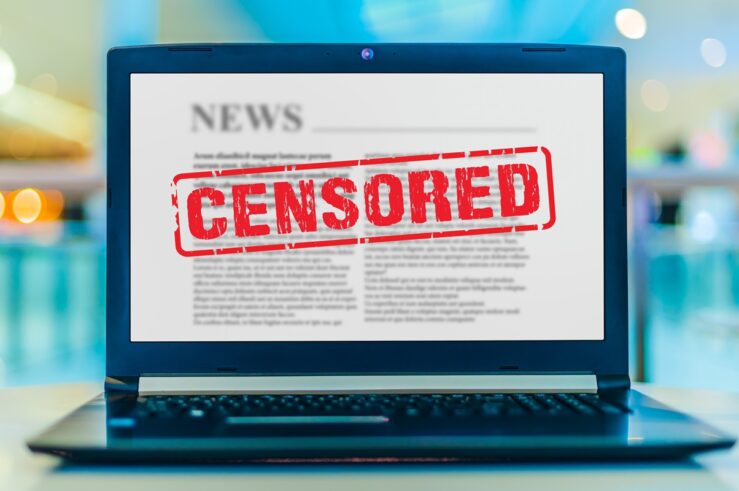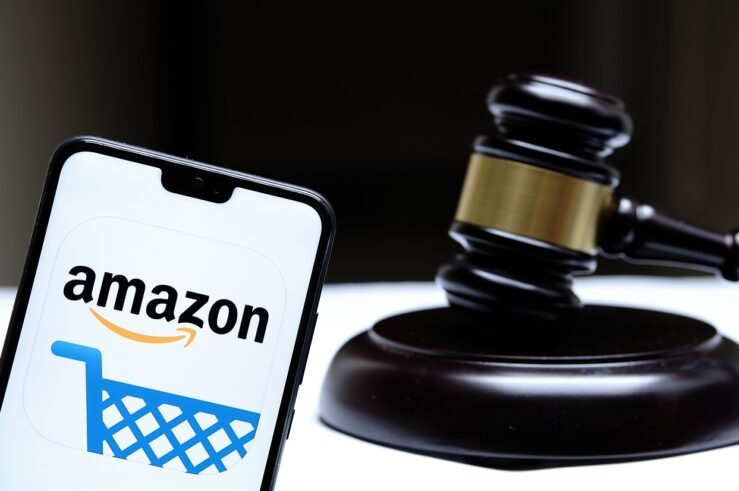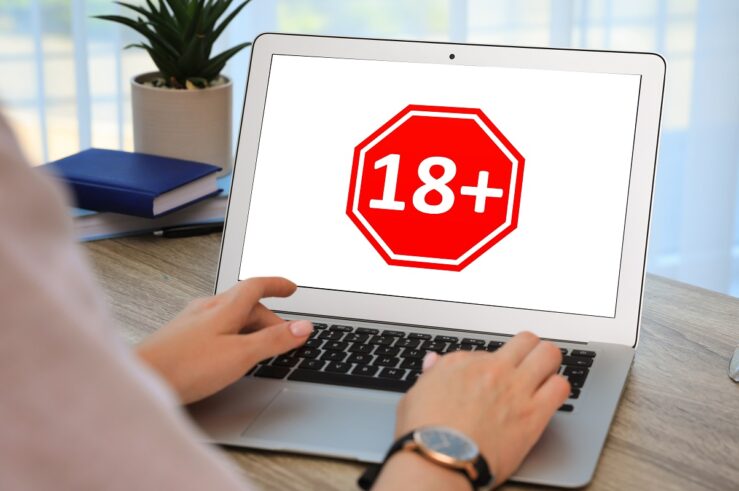Showing archive for: “First Amendment”
The FTC Should Not Enact a Deceptive or Unfair Marketing Earnings-Claims Rule
Back in February 2022, the Federal Trade Commission (FTC) announced an advance notice of proposed rulemaking (ANPRM) on “deceptive or unfair earnings claims.” According to the FTC: [The Deceptive or Unfair ANPRM was aimed at] challenging bogus money-making claims used to lure consumers, workers, and prospective entrepreneurs into risky business ventures that often turn into ... The FTC Should Not Enact a Deceptive or Unfair Marketing Earnings-Claims Rule
ICLE’s Amicus Briefs on the Future of Online Speech
Over the past few months, we at the International Center for Law & Economics (ICLE) have endeavored to bring the law & economics methodology to the forefront of several major public controversies surrounding online speech. To date, ICLE has engaged these issues by filing two amicus briefs before the U.S. Supreme Court, and another in ... ICLE’s Amicus Briefs on the Future of Online Speech
ICLE Files Amicus in NetChoice Social-Media Regulation Cases
Through our excellent counsel at Yetter Coleman LLP, the International Center for Law & Economics (ICLE ) filed an amicus brief with the U.S. Supreme Court in the Moody v. NetChoice and NetChoice v. Paxton cases. In it, we argue that the First Amendment’s protection of the “marketplace of ideas” requires allowing private actors—like social-media ... ICLE Files Amicus in NetChoice Social-Media Regulation Cases
What Does NetChoice v. Bonta Mean for KOSA and Other Attempts to Protect Children Online?
With yet another win for NetChoice in the U.S. District Court for the Northern District of California—this time a preliminary injunction granted against California’s Age Appropriate Design Code (AADC)—it is worth asking what this means for the federally proposed Kids Online Safety Act (KOSA) and other laws of similar import that have been considered in ... What Does NetChoice v. Bonta Mean for KOSA and Other Attempts to Protect Children Online?
FTC’s Amazon Complaint: Perhaps the Greatest Affront to Consumer and Producer Welfare in Antitrust History
“Seldom in the history of U.S. antitrust law has one case had the potential to do so much good [HARM] for so many people.” – Federal Trade Commission (FTC) Bureau of Competition Deputy Director John Newman, quoted in a Sept. 26 press release announcing the FTC’s lawsuit against Amazon (correction IN ALL CAPS is mine) ... FTC’s Amazon Complaint: Perhaps the Greatest Affront to Consumer and Producer Welfare in Antitrust History
The Marketplace of Ideas: Government Failure Is Worse Than Market Failure When It Comes to Social-Media Misinformation
Today marks the release of a white paper I have been working on for a long time, titled “Knowledge and Decisions in the Information Age: The Law & Economics of Regulating Misinformation on Social-Media Platforms.” In it, I attempt to outline an Austrian law & economics theory of state action under the First Amendment, and ... The Marketplace of Ideas: Government Failure Is Worse Than Market Failure When It Comes to Social-Media Misinformation
Right to Anonymous Speech, Part 3: Anonymous Speech and Age-Verification Laws
An issue that came up during a terrific panel that I participated in last Thursday—organized by the Federalist Society’s Regulatory Transparency Project—was whether age-verification laws for social-media use infringed on a First Amendment right of either adults or minors to receive speech anonymously. My co-panelist Clare Morell of the Ethics and Public Policy Center put ... Right to Anonymous Speech, Part 3: Anonymous Speech and Age-Verification Laws
Minor Matters in Cyberspace: Examining Internet Age-Verification Regulations
I participated yesterday in a webinar panel hosted by the Federalist Society’s Regulatory Transparency Project. The video was livestreamed at YouTube. Below, I offer my opening remarks, with some links. Thank you for having me. As mentioned, I’m a senior scholar in innovation policy at the International Center for Law & Economics (ICLE). This means ... Minor Matters in Cyberspace: Examining Internet Age-Verification Regulations
Right to Anonymous Speech, Part 2: A Law & Economics Approach
We at the International Center for Law & Economics (ICLE) have written extensively on the intersection of the First Amendment, the regulation of online platforms, and the immunity from liability for user-generated content granted to platforms under Section 230 of the Communications Decency Act of 1996. One of the proposals we put forward was that ... Right to Anonymous Speech, Part 2: A Law & Economics Approach
Right to Anonymous Speech, Part 1: An Introduction from First Principles
What is anonymity? Do we have a right to it? And against what other values should this right be balanced when it comes to government regulation? This blog post will be the first in a series that looks at what anonymity is, why it is important, and what tradeoffs should be considered when applying a ... Right to Anonymous Speech, Part 1: An Introduction from First Principles
Twitter v. Taamneh: Intermediary Liability, The First Amendment, and Section 230
After the oral arguments in Twitter v. Taamneh, Geoffrey Manne, Kristian Stout, and I spilled a lot of ink thinking through the law & economics of intermediary liability and how to draw lines when it comes to social-media companies’ responsibility to prevent online harms stemming from illegal conduct on their platforms. With the Supreme Court’s recent decision in Twitter v. Taamneh, ... Twitter v. Taamneh: Intermediary Liability, The First Amendment, and Section 230
The Law & Economics of Children’s Online Safety: The First Amendment and Online Intermediary Liability
Legislation to secure children’s safety online is all the rage right now, not only on Capitol Hill, but in state legislatures across the country. One of the favored approaches is to impose on platforms a duty of care to protect teen users. For example, Sens. Richard Blumenthal (D-Conn.) and Marsha Blackburn (R-Tenn.) have reintroduced the Kid’s ... The Law & Economics of Children’s Online Safety: The First Amendment and Online Intermediary Liability















